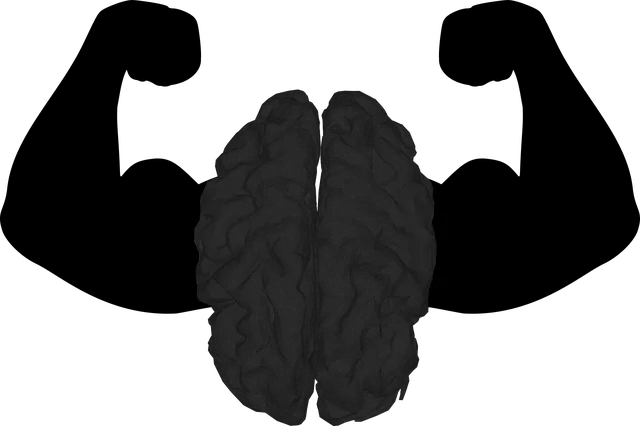Lone Tree Kaiser Permanente mental health providers offer specialized interventions like Mental Wellness Coaching Programs to address social impairments associated with depression, anxiety, and PTSD, leading to improved communication skills, reconnected relationships, and enhanced quality of life. They prioritize social skills development through tailored training sessions combining role-playing, group discussions, and interactive workshops, fostering meaningful connections while integrating cultural sensitivity and self-care practices for both patients and healthcare providers. Lone Tree residents have reported significant improvements in mental health and well-being thanks to these programs.
Social skills training is a powerful tool for managing mental health conditions, enhancing interactions, and improving overall well-being. This article explores how Lone Tree Kaiser Permanente mental health providers are making a significant impact by offering targeted skill development programs. We delve into the challenges faced by individuals with mental health issues in social settings and present effective strategies for training sessions. Real-world success stories from Lone Tree residents highlight the transformative power of these initiatives, showcasing improved confidence and connectedness.
- Understanding the Impact of Mental Health Conditions on Social Interactions
- The Role of Lone Tree Kaiser Permanente Mental Health Providers in Skill Development
- Identifying Key Social Skills for Improvement
- Strategies and Techniques for Effective Training Sessions
- Real-World Application: Success Stories from Lone Tree Residents
Understanding the Impact of Mental Health Conditions on Social Interactions

Mental health conditions significantly shape and influence an individual’s social interactions, often presenting unique challenges for those affected. Conditions such as depression, anxiety, or PTSD can make it difficult for people to connect with others, fostering feelings of isolation and loneliness. These disorders may cause individuals to withdraw from social situations, struggle with communication, and experience intense emotions that impact their ability to build and maintain relationships.
The impact extends beyond personal interactions; it also influences an individual’s overall mental wellness. Lone Tree Kaiser Permanente mental health providers emphasize the importance of addressing these challenges through targeted interventions, such as Mental Wellness Coaching Programs Development. By implementing strategies focused on anxiety relief and burnout prevention, individuals can enhance their social skills, rebuild connections, and improve their quality of life.
The Role of Lone Tree Kaiser Permanente Mental Health Providers in Skill Development

The Lone Tree Kaiser Permanente mental health providers play a pivotal role in fostering social skills development among individuals managing various mental health conditions. These professionals are equipped with specialized knowledge and expertise to address the unique challenges faced by their clients, many of whom may struggle with communication, interpersonal interactions, or emotional regulation. Through tailored therapy sessions, they guide patients towards mastering essential life skills, enhancing their ability to navigate social situations with confidence.
In addition to direct patient care, Lone Tree Kaiser Permanente mental health providers contribute to the broader mental wellness ecosystem by advocating for burnout prevention strategies for healthcare providers. They often integrate topics related to self-care, resilience building, and stress management into their practices, recognizing that maintaining good mental health is crucial for delivering quality care. The Mental Wellness Podcast Series Production, initiated by these providers, further underscores their commitment to promoting mental wellness both within their practice settings and beyond.
Identifying Key Social Skills for Improvement

In the context of mental health conditions, identifying key social skills for improvement is a nuanced process that requires an understanding of the specific challenges faced by individuals. Lone Tree Kaiser Permanente mental health providers often focus on enhancing communication, active listening, and empathy as foundational skills. These abilities facilitate meaningful connections, foster understanding, and promote effective engagement in social settings. By teaching these skills, professionals support clients in navigating interpersonal interactions with confidence, reducing potential triggers for distress.
Moreover, cultural sensitivity in mental healthcare practice is integral to addressing the unique needs of diverse populations. Emotional regulation techniques, as part of emotional healing processes, are tailored to respect and incorporate cultural contexts. This holistic approach ensures that social skills training is not only effective but also culturally affirming, enhancing the overall well-being of clients from various backgrounds.
Strategies and Techniques for Effective Training Sessions

Effective social skills training sessions for mental health conditions require a thoughtful and tailored approach. Lone Tree Kaiser Permanente mental health providers often design engaging programs that incorporate various strategies, such as role-playing scenarios, group discussions, and interactive workshops. By creating a safe and supportive environment, participants can practice and refine their communication and interpersonal abilities. Incorporating real-life examples and personal narratives helps make the training relevant and impactful.
The Mental Health Education Programs Design should focus on fostering cultural sensitivity to ensure everyone feels welcomed and heard. Encouraging open conversations about diverse perspectives and experiences, including those related to Self-Care Routine Development for Better Mental Health, is crucial. Adaptable teaching methods, such as using visual aids, technology, or creative activities, can cater to different learning styles, enhancing overall engagement and retention of information.
Real-World Application: Success Stories from Lone Tree Residents

In the real-world application of social skills training, residents of Lone Tree have witnessed remarkable improvements in their mental health journeys. Many have credited these programs, facilitated by dedicated mental health providers at Lone Tree Kaiser Permanente, for enhancing their ability to connect and communicate effectively. This has led to better relationships, increased support networks, and improved overall well-being.
The success stories from Lone Tree residents highlight the tangible benefits of integrating Burnout Prevention Strategies for Healthcare Providers and promoting Self-Care Routine Development for Better Mental Health. Through these initiatives, individuals have learned Empathy Building Strategies that foster deeper connections with others, reducing feelings of isolation and promoting positive mental health.
Social skills training, facilitated by the dedicated professionals at Lone Tree Kaiser Permanente, has proven to be a transformative tool for individuals navigating mental health conditions. By focusing on key social interactions and employing effective techniques, these programs empower residents to improve their relationships and overall well-being. The success stories shared in this article underscore the impact of such initiatives, demonstrating that with the right support, individuals can overcome challenges and thrive in their communities. Lone Tree Kaiser Permanente mental health providers continue to play a vital role in enhancing social skills, offering hope and tangible results for those seeking better mental health outcomes.






